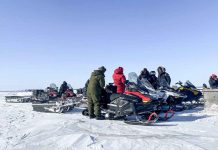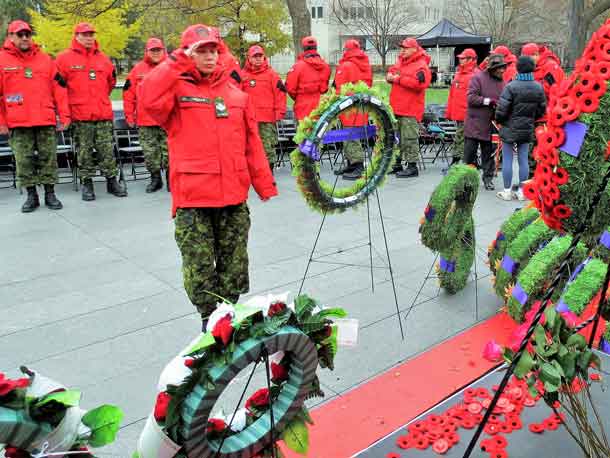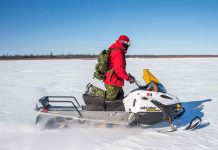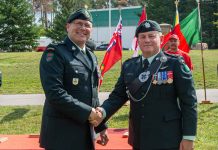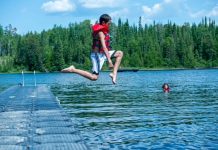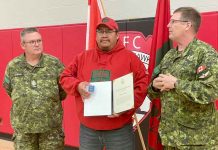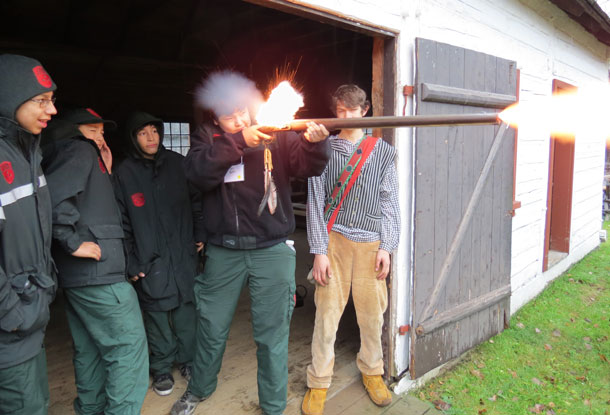
THUNDER BAY – A group of Junior Canadian Rangers went back to their home communities yesterday (Sunday) with a range of new experiences and an increased sense of Aboriginal history after four days of training in Thunder Bay.
“They had an awesome time here,” said Master Corporal Lenore Albany, a Canadian Ranger who works with Junior Rangers in Kasabonika Lake, an Oji-Cree community with a population of about 1,200 people located 575 kilometres north of Thunder Bay. “They had a lot of fun and did a lot of things for the first time and they learned a lot of history here, what life was like 200 years ago. They don’t know about that and they found it very interesting.”
The group of 70 Junior Rangers came from the First Nations of Constance Lake, Kasabonika Lake, Lac Seul and Mishkeegogamang, and the town of Pickle Lake, as well as Junior Rangers who are living in Thunder Bay temporarily to attend high school.

The Junior Rangers are a Canadian Army program for boys and girls aged 12 to 18 in remote and isolated communities across the Canadian North. In the Far North of Ontario, there are 750 Junior Rangers in 23 First Nations.
The Junior Rangers stayed at Fort William Historical Park, where they learned how local people, Aboriginal and European, lived 200 years ago. They also saw a movie in Thunder Bay, visited a trampoline park, and saw the observatory at Fort William.
“This was a chance for them to come here for educational opportunities that don’t necessarily exist in their small communities,” said Warrant Officer Wesley Jenkins, a Canadian Army instructor. “The intent was to bring different communities together so that they could interact with each other, socialize, and learn new things.
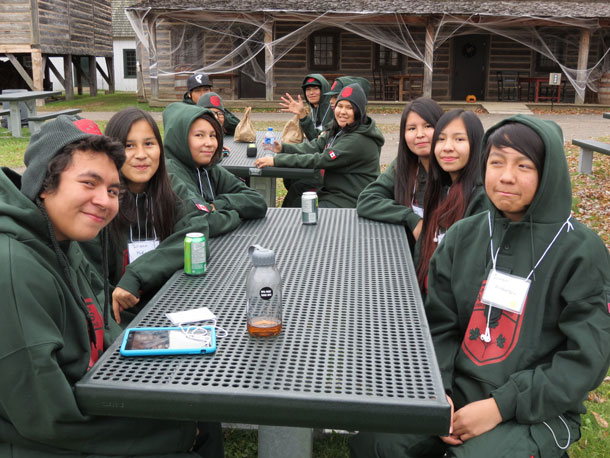
“They are going back to their communities more comfortable in their own skins, having learned to meet new people, and learned some things that may inspire them to continue with their education, or to peak their curiosity with subjects that are outside of the normal realm of their classroom. There are things here that they can’t do up North.”
One of the most interesting parts of the training for many of the Junior Rangers was being taught how Aboriginal peoples lived at the time of the arrival of the first Europeans. “I didn’t know that,” said Claudia Albany, 15, of Kasabonika. “It was interesting.”
“I liked learning about the muskets,” said Alexandre Anderson, 16, of Kasabonika. “Firing the canon was fun. I had a lot of fun here, I made lots of new friends, and I learned a lot of stuff.”
“This is the fourth event we’ve held in Thunder Bay for Junior Canadian Rangers,” said Lieutenant-Colonel Matthew Richardson, commanding officer of 3rd Canadian Ranger Patrol Group. “We’re bringing them here from several northern locations to give them a worthwhile experience in Thunder Bay, which has a lot to offer them. Each event has got bigger and provided greater experiences for them. We want to see this grow into something more permanent.”
(Article and Photographs by Sergeant Peter Moon, the public affairs ranger for 3rd Canadian Ranger Patrol Group at Canadian Forces Base Borden.)

